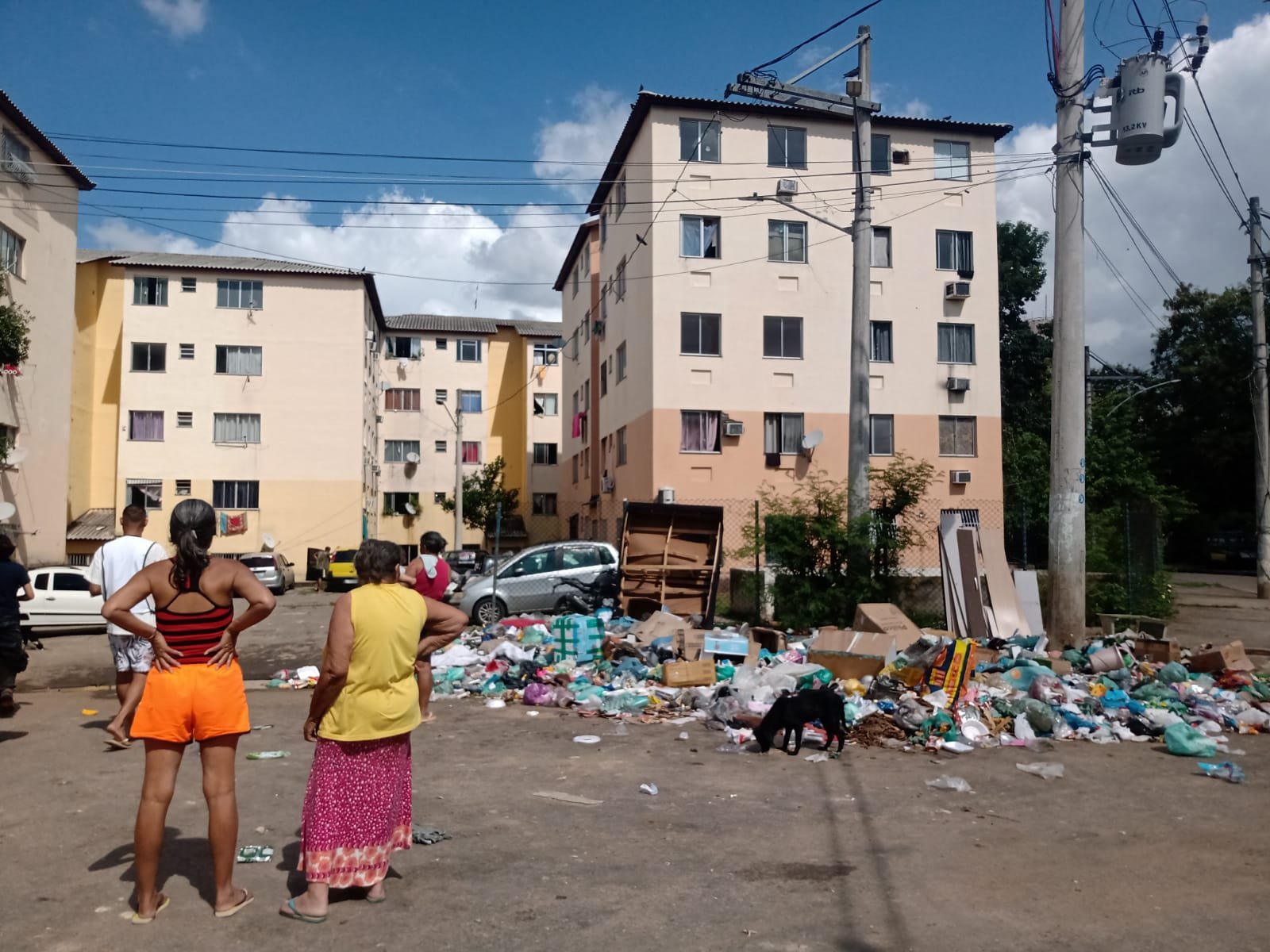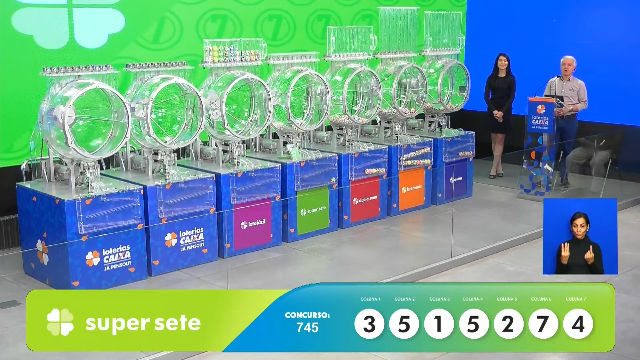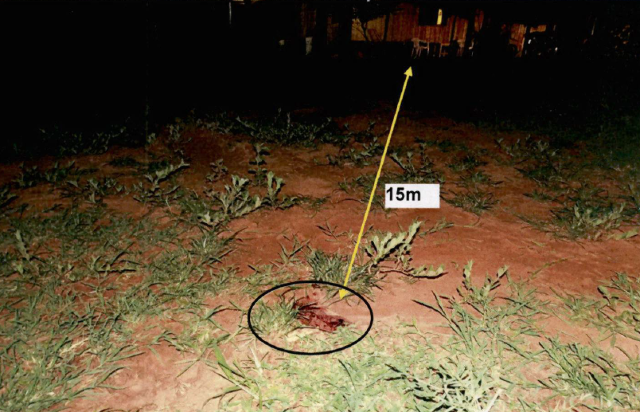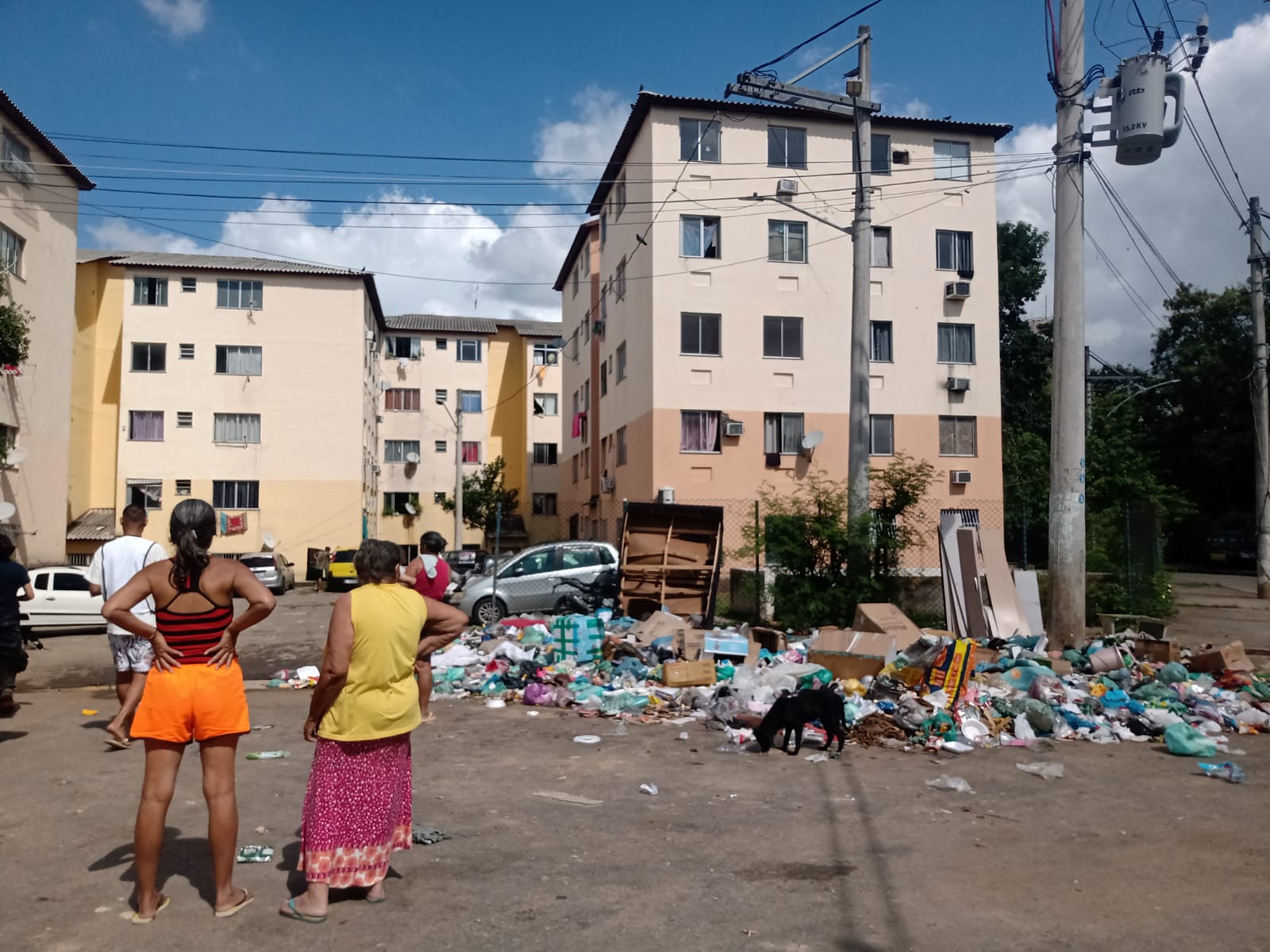
Clique aqui para Português
 This article is part of a series created in partnership with the Behner Stiefel Center for Brazilian Studies at San Diego State University, to produce articles for the Digital Brazil Project on environmental justice in the favelas for RioOnWatch.
This article is part of a series created in partnership with the Behner Stiefel Center for Brazilian Studies at San Diego State University, to produce articles for the Digital Brazil Project on environmental justice in the favelas for RioOnWatch.
This year, International Workers’ Day took on a different meaning at the Haroldo de Andrade public housing complex, in the Rio de Janeiro North Zone neighborhood of Barros Filho. Bringing together around 30 people—men and women, adults and children, residents and participants from environmental movements and organizations—the “Trash? Not to Us!” collective action gathered fifteen 200-liter bags of solid waste and six bags of recyclable materials throughout the complex. In addition, the group planted 29 fruit saplings, two Brazilwood seedlings (the endemic tree after which Brazil is named), and two coriander beds in the community’s green space, where composted organic waste is reused for gardening.
According to Nélio Lopes, who leads the Haroldo de Andrade Sustainable Socio-Educational Project (PSSHA), the initiative seeks to secure waste collection services for the housing complex, which has long suffered from neglect by the Rio de Janeiro city government.
“Due to this government neglect and lack of leadership, we are now facing a major problem: garbage. And I don’t blame the residents for the issue [or for waste not being properly discarded], because we don’t have garbage bins provided by City Hall.” — Nélio Lopes
The day before the collective action, the community submitted yet another request to City Hall for waste collection. According to residents, the municipal government stated that large-capacity garbage bins will be provided by the Subprefecture for Large Complexes, an administrative branch of the City focused on urban development and public services in large-scale public housing complexes. For now, the City says the only option is to place these dumpsters along highways. The City claims it intends to install them in housing complexes and favelas.
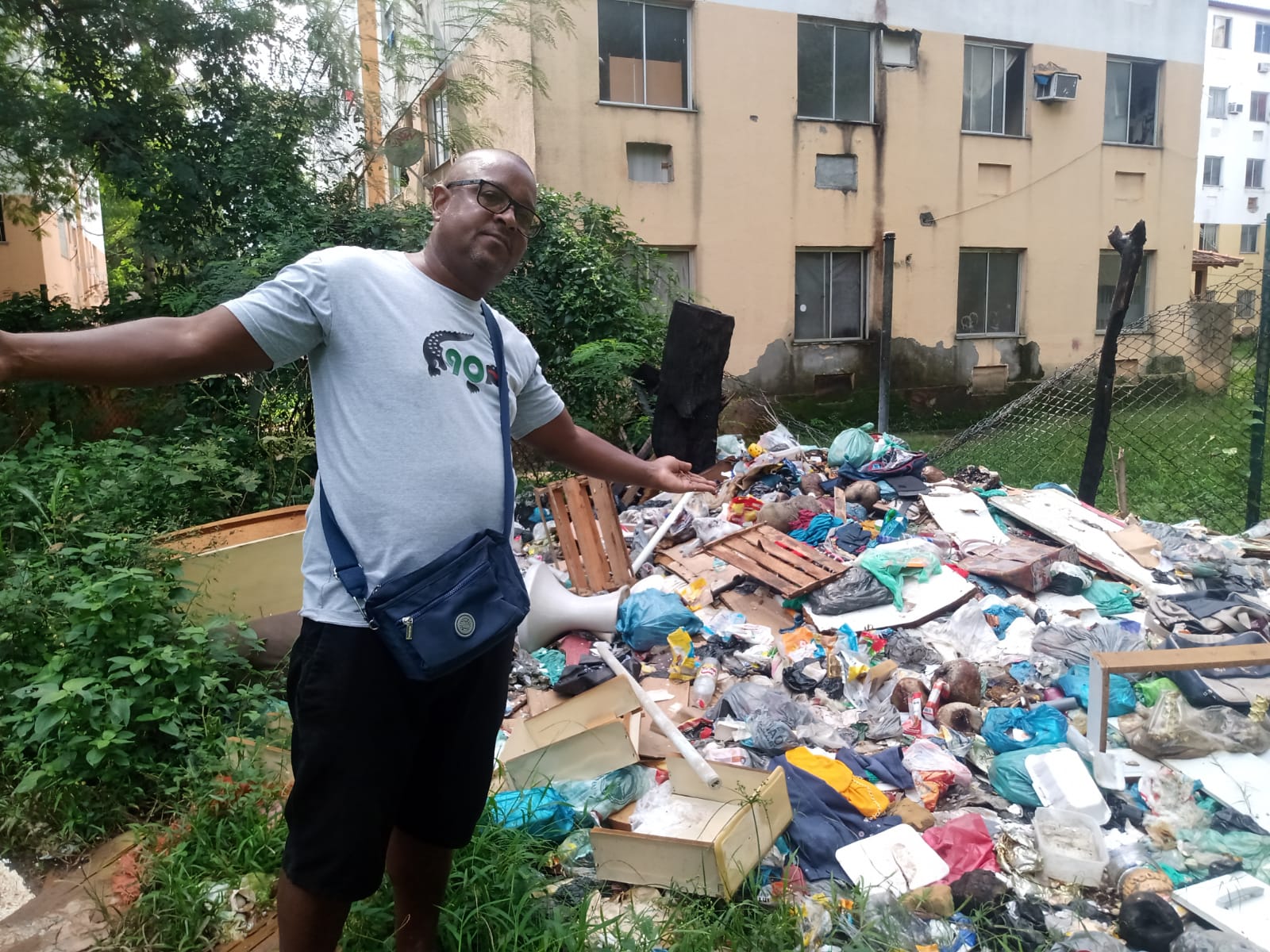
Barros Filho and Its Fight for Basic Rights
The lack of waste collection in the Haroldo de Andrade Housing Complex is not an isolated problem—it is intertwined with the community’s lack of recognition by the government since its inception.
Opened in 2012, the complex was designed as part of the My House My Life federal housing program. However, to this day, the streets of the Haroldo de Andrade Housing Complex and surrounding areas still face registration issues and are officially classified as “construction sites,” despite the work having long been completed. This creates additional barriers to residents’ access to Comlurb‘s services—the municipal waste collection utility.
Rita de Cássia, a cook and resident of Barros Filho, took part in the collective action. Like other participants, she shared the importance of taking care of one’s own neighborhood. For her, this is an act of resistance.
“I’m in this fight with Nélio because we’ve got a lot of garbage here in the complex. [We’re doing this action here today] to help take care of the community because, come on, we live in a place [that already faces so many challenges] and if we don’t take care of it, then what? I mean, don’t we clean our homes on the inside? [So,] why can’t we clean the outside too? Who wants to welcome visitors to a place that’s all dirty? Who likes that? No one. Otherwise, it’s hard for us to keep the area clean, to have a place for the kids to play, you know? It gets really complicated.” — Rita de Cássia
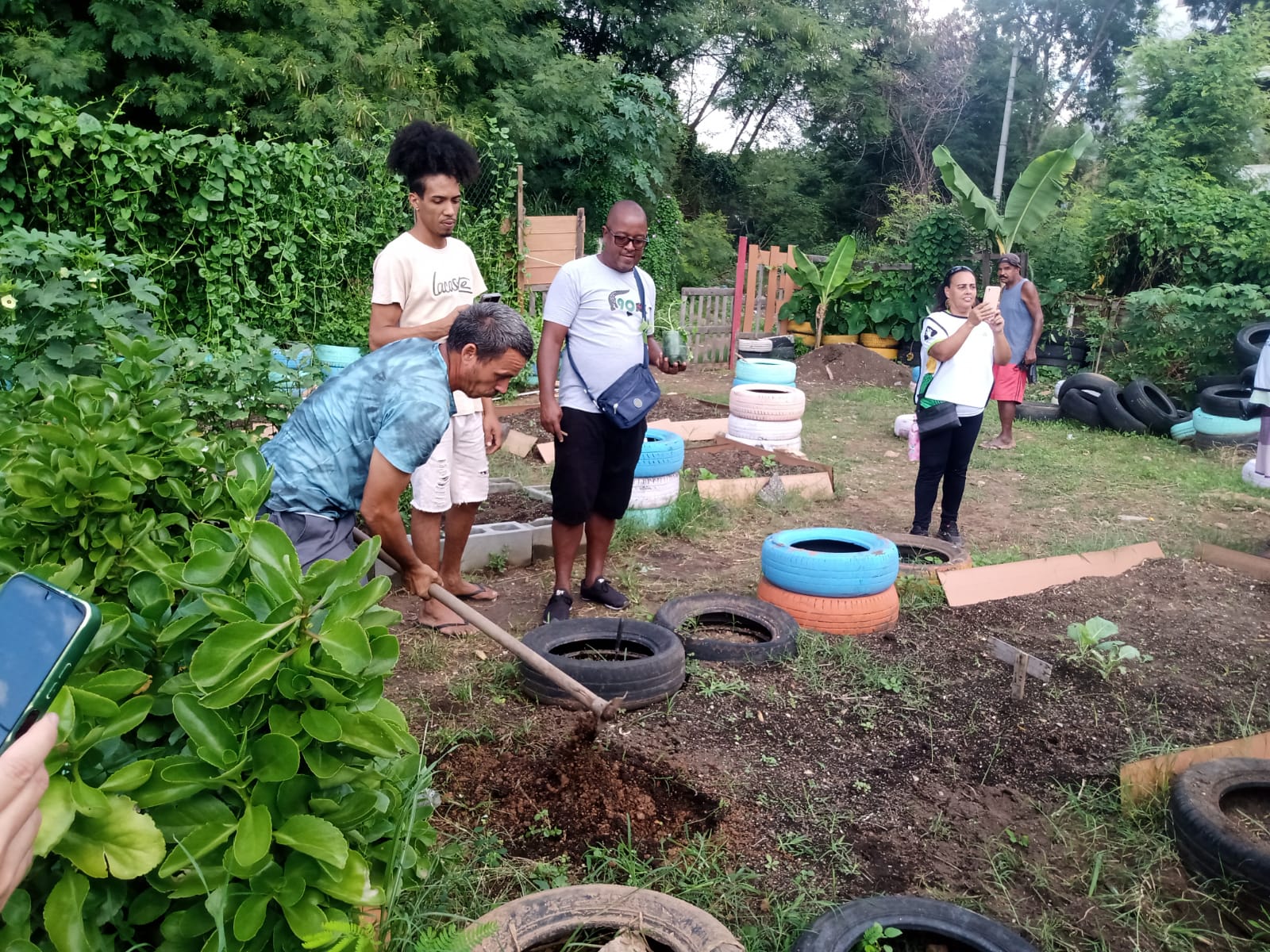
Garbage in a Fragment of Atlantic Forest
The lack of garbage containers and appropriate pick-up also affect residents who live near a small, preserved strip of the Atlantic Forest that runs through the community. Norma Bonfim, a biologist collaborator with the PSSHA project and a member of Baía Viva (Living Bay), a conservation group focused on the Guanabara Bay, explains that maintaining the area is important for the local climate—not only for residents, but for the surrounding region.
“We’ve irrevocably lost several portions of the Atlantic Forest—cleared for real estate speculation or public works projects. And here, a bit of that wildlife still remains. So even though this is a very hot area, without this strip it would be much worse. This patch helps regulate the region’s microclimate. We can’t afford to lose it, because it would mean more pollution, rising temperatures, and the loss of native species, right? This work here is really important.” — Norma Bonfim
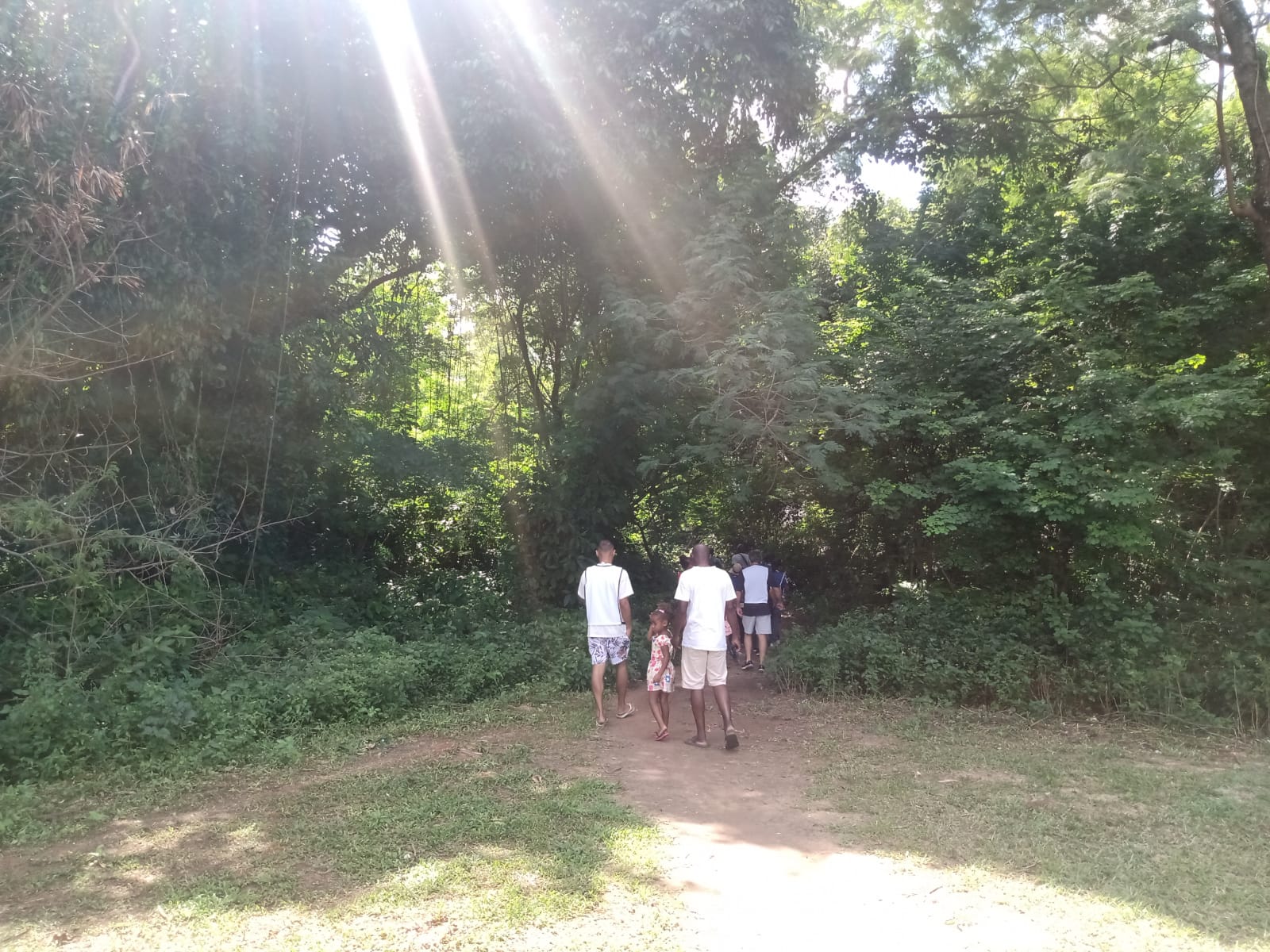
For Waste Pickers, Garbage Means Work: A Vital Job for Society
For Lopes, despite major environmental challenges, there are also opportunities for some residents—in particular those who work as waste pickers, who are generally people in situations of social vulnerability, with low income and limited access to education.
“[The city government] sees trash as trash, but I don’t think it’s just to be disposed of. Trash is [also]… a solution. Today, on Workers’ Day, we need to recognize the waste pickers, right? They’re environmental agents. Often, this is the only job they’ve got because they don’t have much schooling, they don’t know how to use the Internet, and sometimes they don’t have [access to formal] education. The only thing they know how to do is recycle. So, I think we could invest more in this: recycling centers inside favelas. My intention here is for us to [start] collecting this waste, taking it to a central space, sorting it by type of material, and for the government to help us with a [paid] stipend—like the ones they have for Hortas Cariocas [municipal community gardens program] and Guardiões do Rio [an initiative to clean and conserve Rio’s rivers and waterways]—and for these people to be able to share in the surplus, you know? The sale of this material can supplement their salary. For example: the project pays R$600 (~$100 USD monthly) to these people, and, at the end, they get a percentage from the sales they make. That way, we raise awareness and solve this garbage issue in the community.” — Nélio Lopes
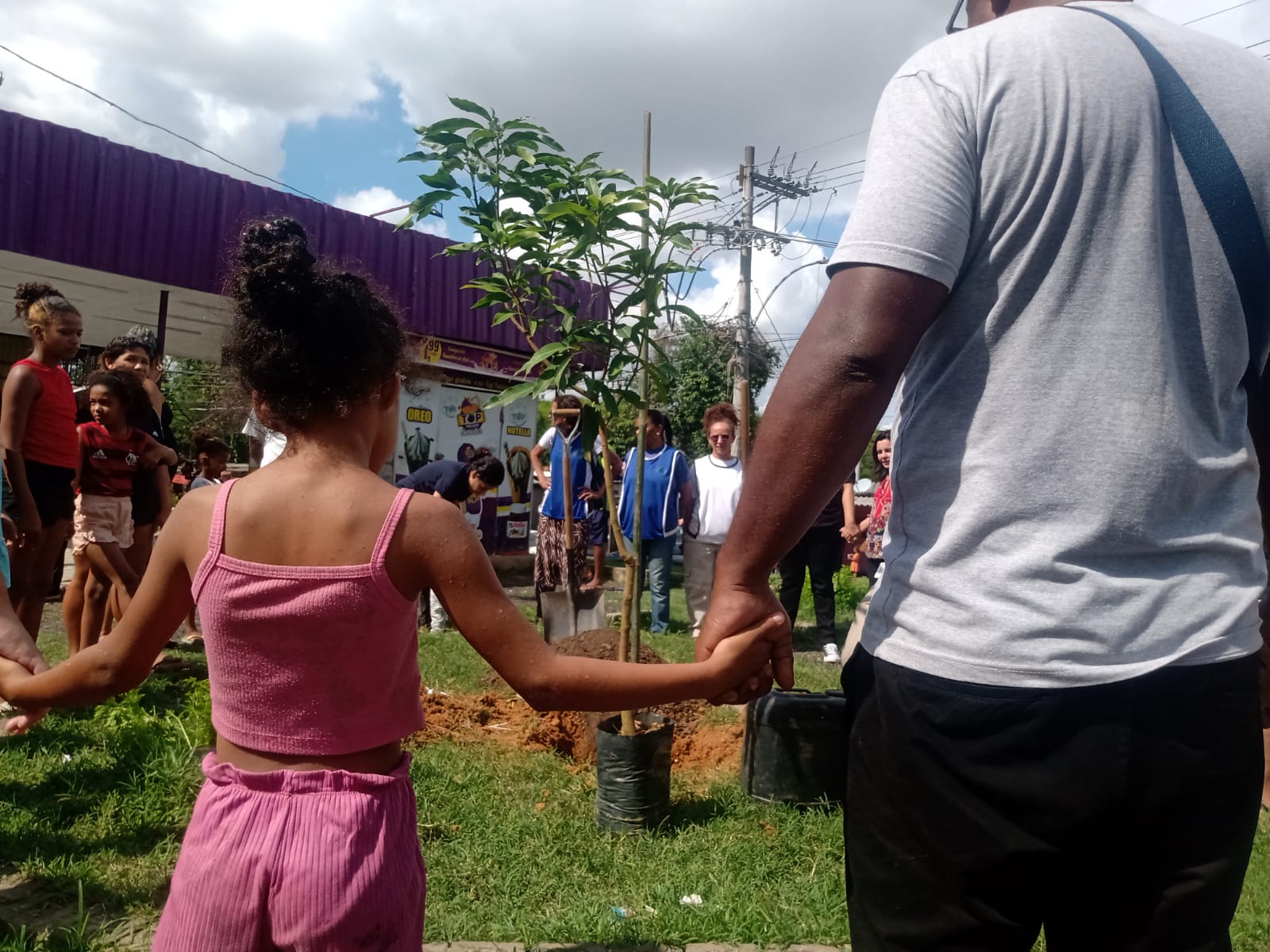
Stael Muniz, a resident of the West Zone’s Vargem Grande neighborhood and, like Lopes, Cássia and Bonfim, a member of Rio’s multi-community Sustainable Favela Network (SFN), highlighted the importance of expanding professional perspectives on waste management. For example, it is necessary to create environmental work centers within favelas.
“We were talking amongst ourselves, saying how great it would be if, just like there are community health agents, there were socio-environmental community agents who could go door to door to people’s homes. You don’t need to tell people where to throw their trash—they know where to do that. The problem is that people separate their trash but we don’t have where to recycle it. So, if we had a group going around collecting all this packaging, which is practically all recyclable, and taking it to Comlurb, [it would] avoid mixing regular waste with recyclables. For those of us who work with this, it would be very cool and practical. But then there’s all that stigma, right? Like, ‘What, me go pick up trash with Comlurb?’ I think there needs to be a partnership between those who collect and those who recycle, because we can make use of [this material] and reduce the amount of waste in the city.” — Stael Muniz
For Lopes, promoting this environmental campaign in Barros Filhos is an act of hope: something that brings residents closer together and awakens them to the power they have to change their own community.
“It’s extremely important [to take on this collective action]. I believe there’s still hope in people. Someone has to awaken that in them. I do this [as] a volunteer, to help [the community], to raise awareness. To leave a legacy, because we don’t take anything from [this life] when we go. I have to pass [through life] and do something. Many people see it as madness. I see it as a calling.” — Nélio Lopes
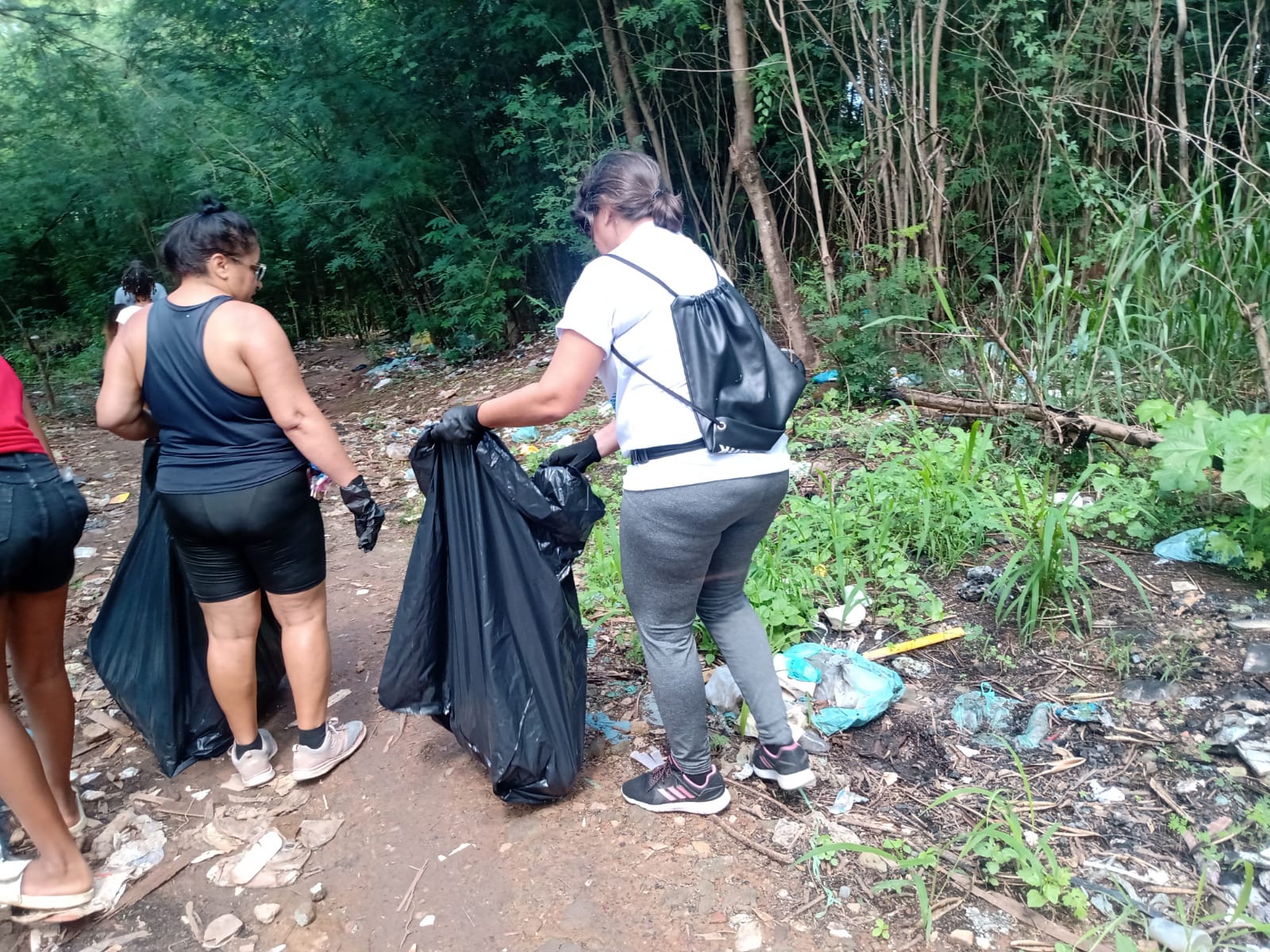
Representatives of the following movements, associations, and organizations were present at the event: Baía Viva, Sustainable Noble Cause, Ilha do Governador Women’s Association, Ibama RJ Environmental Education, Regional Biology Council, Association of Residents and Defenders of Jardim de Allah, Maria Pimentel Marinho Women’s Movement, National Movement of Positive Women Citizens (RJ), and Women of the West Zone of Rio de Janeiro.
About the author: Amanda Baroni Lopes is a journalism student at Unicarioca and was part of the first Journalism Laboratory organized by Maré’s community newspaper Maré de Notícias. She is the author of the Anti-Harassment Guide on Breaking, a handbook that explains what is and isn’t harassment to the Hip Hop audience and provides guidance on what to do in these situations. Lopes is from Morro do Timbau and currently lives in Vila do João, both favelas within the larger Maré favela complex.

